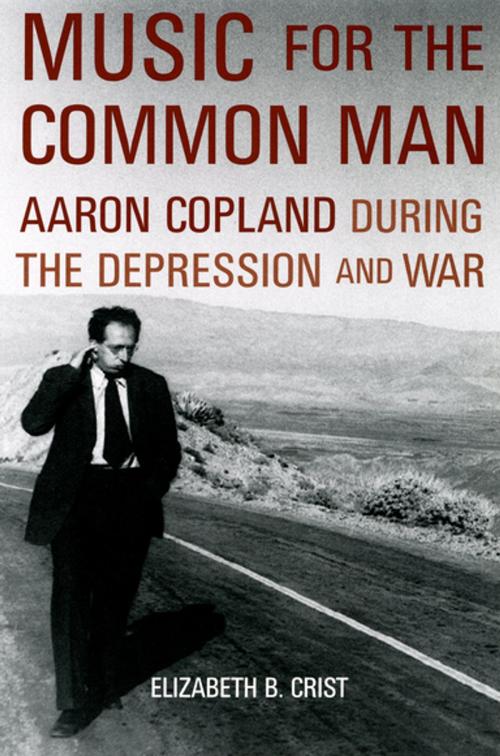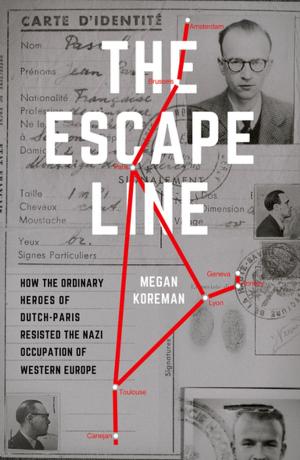Music for the Common Man
Aaron Copland during the Depression and War
Nonfiction, Entertainment, Music, Theory & Criticism, History & Criticism, Reference, History, Americas, United States, 20th Century| Author: | Elizabeth B. Crist | ISBN: | 9780199888801 |
| Publisher: | Oxford University Press | Publication: | January 12, 2009 |
| Imprint: | Oxford University Press | Language: | English |
| Author: | Elizabeth B. Crist |
| ISBN: | 9780199888801 |
| Publisher: | Oxford University Press |
| Publication: | January 12, 2009 |
| Imprint: | Oxford University Press |
| Language: | English |
In the 1930s, Aaron Copland began to write in an accessible style he described as "imposed simplicity." Works like El Salón México, Billy the Kid, Lincoln Portrait, and Appalachian Spring feature a tuneful idiom that brought the composer unprecedented popular success and came to define an American sound. Yet the cultural substance of that sound--the social and political perspective that might be heard within these familiar pieces--has until now been largely overlooked. While it has long been acknowledged that Copland subscribed to leftwing ideals, Music for the Common Man is the first sustained attempt to understand some of Copland's best-known music in the context of leftwing social, political, and cultural currents of the Great Depression and Second World War. Musicologist Elizabeth Crist argues that Copland's politics never merely accorded with mainstream New Deal liberalism, wartime patriotism, and Communist Party aesthetic policy, but advanced a progressive vision of American society and culture. Copland's music can be heard to accord with the political tenets of progressivism in the 1930s and '40s, including a fundamental sensitivity toward those less fortunate, support of multiethnic pluralism, belief in social democracy, and faith that America's past could be put in service of a better future. Crist explores how his works wrestle with the political complexities and cultural contradictions of the era by investing symbols of America--the West, folk song, patriotism, or the people--with progressive social ideals. Much as been written on the relationship between politics and art in the 1930s and '40s, but very little on concert music of the era. Music for the Common Man offers fresh insights on familiar pieces and the political context in which they emerged.
In the 1930s, Aaron Copland began to write in an accessible style he described as "imposed simplicity." Works like El Salón México, Billy the Kid, Lincoln Portrait, and Appalachian Spring feature a tuneful idiom that brought the composer unprecedented popular success and came to define an American sound. Yet the cultural substance of that sound--the social and political perspective that might be heard within these familiar pieces--has until now been largely overlooked. While it has long been acknowledged that Copland subscribed to leftwing ideals, Music for the Common Man is the first sustained attempt to understand some of Copland's best-known music in the context of leftwing social, political, and cultural currents of the Great Depression and Second World War. Musicologist Elizabeth Crist argues that Copland's politics never merely accorded with mainstream New Deal liberalism, wartime patriotism, and Communist Party aesthetic policy, but advanced a progressive vision of American society and culture. Copland's music can be heard to accord with the political tenets of progressivism in the 1930s and '40s, including a fundamental sensitivity toward those less fortunate, support of multiethnic pluralism, belief in social democracy, and faith that America's past could be put in service of a better future. Crist explores how his works wrestle with the political complexities and cultural contradictions of the era by investing symbols of America--the West, folk song, patriotism, or the people--with progressive social ideals. Much as been written on the relationship between politics and art in the 1930s and '40s, but very little on concert music of the era. Music for the Common Man offers fresh insights on familiar pieces and the political context in which they emerged.















